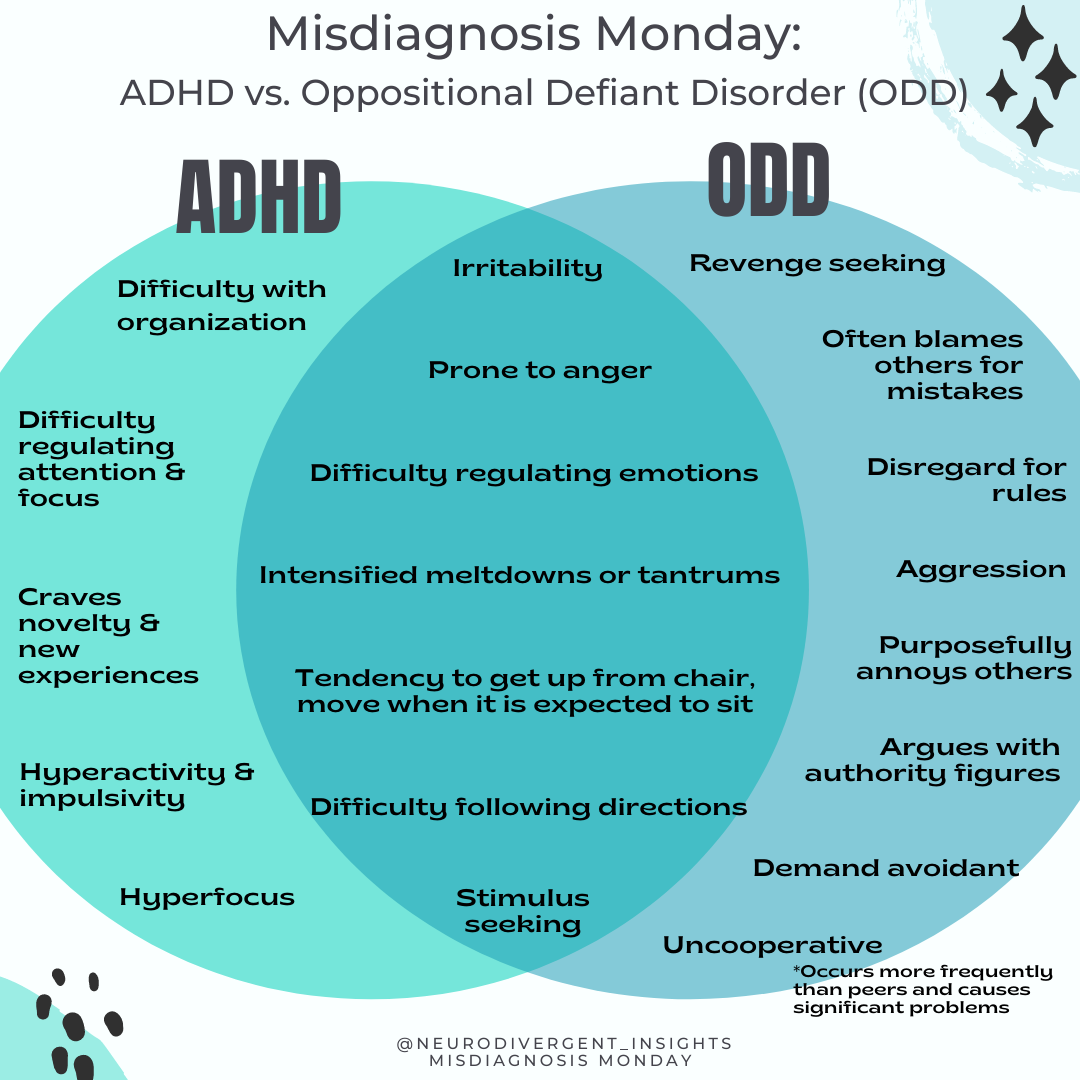
What Teachers Need to Know About Students with ODD
What teachers need to know about students with odd oppositional defiant disorder (ODD) is crucial for creating a supportive and effective learning environment. ODD is a behavioral disorder characterized by persistent negative, defiant, and hostile behavior towards authority figures. Understanding the complexities of ODD and its impact on students is essential for educators to effectively manage challenging behaviors and provide appropriate support.
Students with ODD may exhibit a range of behaviors, including arguing with adults, deliberately annoying others, blaming others for their mistakes, and being easily angered. These behaviors can significantly disrupt classroom learning and negatively affect a student’s academic performance and social relationships.
Teachers play a vital role in identifying students with ODD and implementing strategies to foster positive behavior change.
Understanding Oppositional Defiant Disorder (ODD)

Oppositional defiant disorder (ODD) is a behavioral disorder characterized by a persistent pattern of negativistic, hostile, and defiant behavior. Children with ODD often exhibit a range of challenging behaviors that can significantly impact their relationships, school performance, and overall well-being.
It’s crucial for teachers to understand the nature of ODD and its potential impact on students in the classroom.
Defining ODD and Distinguishing It from Other Behavioral Disorders
ODD is a distinct disorder that differs from other behavioral problems, such as conduct disorder, ADHD, and anxiety.
- ODDinvolves a persistent pattern of angry and irritable mood, argumentative and defiant behavior, and vindictiveness.
- Conduct disorderis characterized by more severe and aggressive behaviors, including rule-breaking, property destruction, and physical harm to others.
- ADHDprimarily involves inattention, hyperactivity, and impulsivity. While some children with ADHD may exhibit oppositional behaviors, these are not the core features of the disorder.
- Anxietyis characterized by excessive worry, fear, and avoidance behaviors. Children with anxiety may exhibit some oppositional behaviors as a way of coping with their anxieties.
Common Symptoms of ODD in Children and Adolescents
Children and adolescents with ODD typically display a consistent pattern of behaviors that fall into several categories:
- Angry and Irritable Mood:Frequent temper tantrums, easily annoyed, often angry and resentful, argues with adults.
- Argumentative and Defiant Behavior:Deliberately annoys others, blames others for their mistakes, defies rules and requests, refuses to follow directions.
- Vindictiveness:Spiteful and vindictive, tries to get even with others, holds grudges.
Potential Causes and Risk Factors Associated with ODD
While the exact causes of ODD are complex and not fully understood, research suggests that a combination of genetic, environmental, and social factors contribute to its development.
- Genetic Factors:Studies indicate that ODD has a genetic component, suggesting that children with a family history of the disorder are at an increased risk.
- Environmental Factors:Adverse childhood experiences, such as neglect, abuse, or exposure to violence, can increase the risk of ODD.
- Social Factors:Difficult family relationships, lack of parental supervision, and peer rejection can also contribute to the development of ODD.
Impact of ODD on Students and the Classroom

Oppositional Defiant Disorder (ODD) can significantly impact a student’s academic performance, social interactions, and overall classroom experience. Understanding the challenges ODD presents for students and teachers is crucial for creating a supportive and effective learning environment.
Understanding students with oppositional defiant disorder (ODD) requires patience and a willingness to find creative solutions. Sometimes, a change of pace can be just what they need, and what better way to do that than with a good book?
If you’re looking for some inspiration, check out this list of 16 butterfly books worth fluttering for. These captivating stories might just be the key to unlocking a child’s imagination and fostering a love of reading, which can be a powerful tool in managing ODD behaviors.
Academic Performance
ODD can negatively affect a student’s academic performance in several ways. Students with ODD may struggle to focus in class, complete assignments, and follow classroom rules. They may also have difficulty with organization and time management, leading to missed deadlines and incomplete work.
Understanding the challenges faced by students with Oppositional Defiant Disorder (ODD) is crucial for teachers. These students often struggle with authority and may engage in disruptive behavior. It’s important to remember that their actions stem from a complex interplay of factors, and that patience and understanding are essential.
While open communication is vital in any classroom, it’s interesting to consider the broader implications of free speech in a democracy. The article free speech is essential for democracy could it also be democracy’s downfall explores the delicate balance between individual expression and societal harmony.
Ultimately, teachers can play a significant role in supporting students with ODD by fostering a safe and respectful environment that encourages positive communication and growth.
These challenges can result in lower grades, academic difficulties, and feelings of frustration and discouragement.
Social Interactions
ODD can also impact a student’s social interactions. Students with ODD may have difficulty controlling their emotions, leading to outbursts of anger, defiance, and argumentativeness. They may also struggle to build and maintain positive relationships with peers and teachers. These challenges can lead to social isolation, rejection, and difficulties in forming meaningful connections.
Common Classroom Behaviors
Students with ODD often exhibit a range of challenging behaviors in the classroom. Some common behaviors include:
- Defiance and Argumentativeness:Refusing to follow instructions, arguing with teachers and peers, and challenging authority.
- Anger and Irritability:Frequent temper tantrums, outbursts of anger, and difficulty controlling emotions.
- Blaming Others:Taking responsibility for their actions and blaming others for their mistakes.
- Vindictiveness:Seeking revenge or trying to get back at others who have wronged them.
- Disruptive Behavior:Talking out of turn, interrupting others, and engaging in off-task behaviors.
Challenges for Teachers
Managing students with ODD presents unique challenges for teachers. Some common difficulties include:
- Maintaining Classroom Control:Students with ODD may be disruptive and difficult to manage, making it challenging to maintain a productive learning environment.
- Building Positive Relationships:Establishing a positive and trusting relationship with a student with ODD can be difficult due to their challenging behavior and tendency to resist authority.
- Effective Discipline:Traditional disciplinary methods may not be effective for students with ODD, requiring teachers to use alternative strategies.
- Collaboration with Parents:Working with parents to support their child’s needs and manage their behavior can be challenging, particularly if there is resistance or lack of cooperation.
Strategies for Supporting Students with ODD
Supporting students with Oppositional Defiant Disorder (ODD) requires a multifaceted approach that focuses on creating a structured and predictable learning environment. Understanding the challenges these students face is crucial for implementing effective strategies that promote positive behavior change.
Establishing Clear Expectations and Boundaries
Setting clear and consistent expectations for behavior is essential for students with ODD. When expectations are well-defined and consistently enforced, students can better understand what is expected of them, leading to a decrease in oppositional behaviors.
- Develop a Positive Behavior Support Plan:Create a written plan that Artikels specific, measurable, achievable, relevant, and time-bound (SMART) goals for the student’s behavior. This plan should include clear expectations, consequences for inappropriate behavior, and rewards for positive behavior.
- Communicate Expectations Clearly:Use simple, direct language to explain expectations to the student. Avoid using ambiguous terms or making assumptions about their understanding. Provide clear examples of what is expected and what is not acceptable.
- Use Visual Aids:Visual aids, such as posters or checklists, can be helpful in reinforcing expectations and providing a visual reminder of what is expected. These aids can be particularly beneficial for students who struggle with verbal instructions.
- Establish Consistent Routines:Predictable routines and schedules can provide a sense of security and stability for students with ODD. Having a clear understanding of what to expect throughout the day can help reduce anxiety and minimize oppositional behaviors.
Consistent and Positive Reinforcement
Positive reinforcement plays a crucial role in shaping desired behaviors. When students are rewarded for positive behavior, they are more likely to repeat those behaviors.
- Catch Students Being Good:Actively look for opportunities to praise and reward the student for positive behavior. Even small acts of cooperation or effort should be acknowledged and reinforced.
- Use a Variety of Reinforcers:Not all students are motivated by the same rewards. Offer a variety of positive reinforcers, such as verbal praise, tangible rewards, privileges, or opportunities to participate in enjoyable activities.
- Provide Immediate Feedback:Reinforcement is most effective when it is provided immediately after the desired behavior. This helps the student connect the behavior with the reward and understand the consequences of their actions.
- Be Consistent:It is important to be consistent with reinforcement. If a student is rewarded for a behavior one day and punished for it the next, they will become confused and their behavior will be unpredictable.
Effective Communication Strategies
Effective communication is essential for building positive relationships with students with ODD. By using specific strategies, teachers can create a supportive environment that encourages open dialogue and understanding.
Understanding the challenges faced by students with Oppositional Defiant Disorder (ODD) is crucial for teachers. It’s important to remember that these students are often struggling with underlying emotional and behavioral issues, which can manifest in defiance, anger, and difficulty following rules.
While navigating these complexities, it’s also interesting to see how the University of Michigan is navigating its own challenges, recently choosing Santa Ono as its new president months after the ouster of Mark Schlissel. Just like teachers need to create a supportive environment for students with ODD, the university will need to foster a positive and productive atmosphere under its new leadership.
- Active Listening:When communicating with a student with ODD, it is important to listen attentively and show genuine interest in what they have to say. Use nonverbal cues, such as eye contact and nodding, to demonstrate that you are paying attention.
- Use “I” Statements:“I” statements help to focus on the teacher’s feelings and observations, rather than blaming or accusing the student. For example, instead of saying, “You’re being disrespectful,” you could say, “I feel disrespected when you talk back to me.”
- Maintain a Calm Demeanor:It is important to remain calm and collected when interacting with a student with ODD. Avoid reacting emotionally to their behavior, as this can escalate the situation.
- Avoid Power Struggles:Power struggles can be counterproductive and lead to increased oppositional behavior. Try to find ways to collaborate with the student, rather than trying to exert your authority over them.
Collaboration and Support Networks: What Teachers Need To Know About Students With Odd Oppositional Defiant Disorder
Supporting students with ODD requires a collaborative effort involving parents, guardians, educators, and mental health professionals. A strong support network can provide a comprehensive approach to addressing the challenges associated with ODD and fostering the student’s overall well-being.
Involving Parents and Guardians
Parental involvement is crucial in supporting students with ODD. Open communication between parents and educators is essential to create a consistent approach to behavior management and provide a unified front for the student. Parents can contribute by:
- Sharing insights into their child’s behavior at home and identifying potential triggers for challenging behaviors.
- Collaborating with educators to implement consistent behavioral strategies at home and school.
- Seeking professional support for their child, such as therapy or counseling, to address underlying emotional and behavioral issues.
Role of School Counselors and Other Professionals, What teachers need to know about students with odd oppositional defiant disorder
School counselors and other mental health professionals play a vital role in supporting students with ODD. They can provide:
- Individual and group counseling to help students develop coping skills, manage anger, and improve social skills.
- Behavioral interventions, such as positive reinforcement and token economies, to encourage positive behaviors.
- Consultation and support to teachers and parents on strategies for managing challenging behaviors.
Interventions and Therapies for Students with ODD
Various interventions and therapies can be beneficial for students with ODD. These approaches aim to address the underlying emotional and behavioral issues contributing to the disorder. Some common interventions include:
- Cognitive Behavioral Therapy (CBT):This therapy helps students identify and change negative thought patterns and behaviors that contribute to their challenges.
- Parent Management Training (PMT):This approach teaches parents effective strategies for managing their child’s behavior, including setting clear limits, providing consistent consequences, and using positive reinforcement.
- Family Therapy:This therapy focuses on improving communication and relationships within the family, which can significantly impact a child’s behavior.
- Medication:In some cases, medication may be used to address underlying mental health conditions, such as anxiety or depression, that contribute to ODD symptoms.
Creating a Positive and Supportive Classroom Environment
A classroom environment that fosters positive behavior and minimizes conflict is essential for the success of all students, especially those with ODD. A structured and predictable environment can help reduce anxiety and provide a sense of security for students who may struggle with emotional regulation.
Visual Aids, Routines, and Predictable Schedules
Visual aids, routines, and predictable schedules are invaluable tools for creating a supportive learning environment for students with ODD. These strategies provide clear expectations and reduce ambiguity, which can be particularly helpful for students who may have difficulty understanding or following verbal instructions.
- Visual Schedules:A visual schedule can help students with ODD understand the sequence of activities throughout the day. This can be a simple picture-based schedule or a more detailed list of tasks with corresponding times.
- Visual Cues:Visual cues can be used to remind students of classroom expectations and rules. For example, a poster with pictures depicting appropriate classroom behaviors can be displayed prominently in the classroom.
- Consistent Routines:Establishing consistent routines for activities such as transitions, homework time, and classroom cleanup can help students with ODD anticipate what to expect and feel more secure.
Classroom Management Techniques
Classroom management techniques specifically designed for students with ODD should focus on positive reinforcement, clear communication, and consistent consequences.
- Positive Reinforcement:Catch students with ODD doing something right and acknowledge their positive behaviors with verbal praise, tangible rewards, or privileges.
- Clear Expectations:Clearly communicate expectations for behavior and provide specific examples of what is acceptable and unacceptable.
- Consistently Enforce Rules:Establish clear consequences for rule violations and ensure that these consequences are applied consistently. This helps students with ODD understand that their actions have predictable outcomes.
- Time-Outs:Time-outs can be used to help students with ODD calm down and regain control of their emotions. A designated quiet space where students can take a break from the classroom environment can be helpful.
Last Point

By understanding the nuances of ODD, implementing effective strategies, and collaborating with support networks, teachers can create a positive and supportive classroom environment that helps students with ODD thrive. It is important to remember that every student is unique, and a personalized approach is crucial for successful interventions.
With patience, understanding, and consistent effort, teachers can make a significant difference in the lives of students with ODD, empowering them to reach their full potential.

